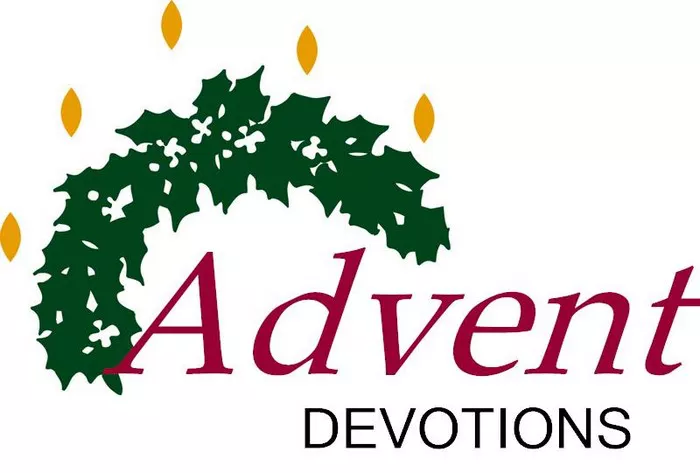Advent is a significant time in the Christian calendar, marking the period of preparation and anticipation leading up to Christmas. It is a season observed with various traditions, including the practice of Advent Bible study. This article delves into what Advent Bible study entails, its purpose, methods, and how it enriches spiritual growth during this sacred season.
Understanding Advent: A Season of Hope and Anticipation
Advent, derived from the Latin word “adventus” meaning “coming” or “arrival,” begins on the fourth Sunday before Christmas Day. It typically spans four weeks, symbolizing the four centuries of waiting for the Messiah prophesied in the Old Testament. Christians use this time to reflect on the coming of Christ—both his historical birth in Bethlehem and his anticipated return in glory.
The season of Advent is characterized by themes of hope, peace, joy, and love, often represented by the lighting of candles on an Advent wreath—one for each week leading up to Christmas. This period serves as a spiritual journey, preparing hearts to receive the true meaning of Christmas amidst the commercialism and busyness of the season.
The Purpose of Advent Bible Study
Advent Bible study is a focused exploration of Scripture during the Advent season. Its primary goal is to deepen participants’ understanding of God’s plan of salvation through Christ. It encourages personal reflection, communal worship, and practical application of biblical teachings in daily life. This intentional study helps individuals and groups to:
Prepare Spiritually: By studying the prophecies and promises concerning the coming of Christ, participants prepare their hearts to celebrate Christmas with renewed spiritual vitality.
Connect with Tradition: Advent Bible study connects believers with the rich historical and theological traditions of the Church, tracing the fulfillment of God’s promises through Scripture.
Cultivate Hope and Expectation: Through the study of biblical passages related to Advent, participants cultivate a sense of hope and expectation, mirroring the anticipation felt by the ancient Israelites awaiting the Messiah.
Encourage Community and Fellowship: Group study fosters community among believers, providing opportunities for mutual encouragement, prayer, and support during a season that can be challenging for many.
Celebrate the Fullness of Christ’s Incarnation: Advent Bible study helps believers to grasp the full significance of Christ’s incarnation—God becoming human—and its implications for salvation and the Kingdom of God.
Methods of Advent Bible Study
Advent Bible study can be conducted in various formats, depending on the needs and preferences of participants. Common methods include:
Scripture Readings and Reflections: Using a designated Advent Bible reading plan, participants read selected passages each day or week, accompanied by reflective questions or devotionals.
Thematic Studies: Focusing on specific Advent themes—such as hope, peace, joy, and love—participants explore related Scriptures, theological insights, and practical applications.
Advent Devotionals: Written materials or books designed for daily or weekly devotional readings during Advent, often including Scripture passages, reflections, prayers, and discussion points.
Group Discussions: Small groups or church communities gather to discuss Advent readings, share insights, pray together, and encourage one another in faith.
Creative Expressions: Some Advent Bible studies incorporate artistic or creative elements, such as Advent wreath making, visual arts, music, or drama, to engage participants in deeper reflection and expression of faith.
The Role of Scripture in Advent Bible Study
Central to Advent Bible study is the careful examination of Scripture passages that foretell the coming of the Messiah and prepare believers for his arrival. Key biblical texts commonly studied during Advent include:
Old Testament Prophecies: Passages from Isaiah, Micah, and other prophets foretelling the birth of the Messiah and the coming of God’s Kingdom.
Gospel Accounts: Narratives from the Gospels of Matthew and Luke detailing the events surrounding the birth of Jesus, including the Annunciation, Mary’s Magnificat, the birth in Bethlehem, and the visit of the shepherds.
New Testament Epistles: Letters from the New Testament that reflect on the significance of Christ’s birth, such as Paul’s writings on the incarnation and its implications for believers.
Revelation of God’s Plan: Scriptures that reveal God’s unfolding plan of redemption through Christ, connecting the promises of the Old Testament with their fulfillment in the New Testament.
By studying these passages, participants in Advent Bible study gain a deeper understanding of God’s faithfulness, the fulfillment of prophecy in Christ, and the hope of salvation offered through his birth, life, death, and resurrection.
SEE ALSO: Significance of Celebrating Advent: A Biblical Perspective
Practical Benefits of Advent Bible Study
Engaging in Advent Bible study offers practical benefits that extend beyond the season itself:
Spiritual Growth: Participants deepen their relationship with God through regular study of his Word, prayer, and reflection on the meaning of Christ’s coming.
Renewed Focus on Christ: Amidst the distractions of the holiday season, Advent Bible study helps believers to maintain a Christ-centered focus, resisting consumerism and secularism.
Preparation for Worship: By studying Advent Scriptures, participants are better prepared to engage in meaningful worship during Advent services and Christmas celebrations.
Community Building: Group participation fosters a sense of community, mutual support, and accountability among believers, enhancing the spiritual vitality of the church.
Application to Daily Life: The insights gained from Advent Bible study can be applied practically to daily challenges, relationships, and decisions, reflecting Christ’s teachings in all aspects of life.
Conclusion
In conclusion, Advent Bible study is a profound spiritual practice that enriches the observance of Advent—a season of hope, preparation, and joyful anticipation. Through intentional study of Scripture, believers connect with the historical and theological significance of Christ’s coming, fostering spiritual growth, community, and worship. As Christians worldwide prepare to celebrate the birth of Jesus Christ, Advent Bible study provides a meaningful framework to deepen faith, cultivate hope, and proclaim the transformative message of Emmanuel—God with us.
Whether individually or in community, Advent Bible study invites believers to journey together through Scripture, reflecting on God’s promises fulfilled in Christ and anticipating his coming Kingdom. May this season be a time of renewal, revelation, and rejoicing as we await the glorious advent of our Savior, Jesus Christ.

